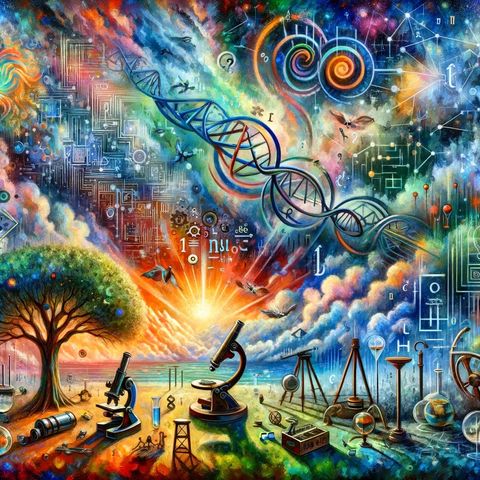This Moment in Science History for 11-21-2024

Descarga y escucha en cualquier lugar
Descarga tus episodios favoritos y disfrútalos, ¡dondequiera que estés! Regístrate o inicia sesión ahora para acceder a la escucha sin conexión.
This Moment in Science History for 11-21-2024
Esta transcripción es generada automáticamente. Ten en cuenta que no se garantiza una precisión absoluta.
Descripción
On November 21, 1877, Thomas Edison announced his invention of the phonograph, a device that could record and play back sound. This groundbreaking invention changed the world of music and...
mostra másThe story goes that Edison was working on a machine to transcribe telegraph messages through indentations on paper tape when he came up with the idea of recording telephone messages. He began experimenting with a diaphragm that had an embossing point and was held against rapidly moving paraffin paper. To his amazement, the machine was able to record and play back sound.
Edison's early phonograph recordings were indented on tinfoil sheets wrapped around a rotating metal cylinder. He recorded the nursery rhyme "Mary Had a Little Lamb" and was astonished when he heard the machine play it back to him. This was the first time a human voice had been recorded and reproduced.
News of Edison's invention quickly spread, and he became a celebrity overnight. The phonograph was a sensation, and people marveled at the idea of being able to capture and replay sound. Edison took his phonograph on tour and demonstrated it to audiences, who were fascinated by the device.
While the early phonographs were crude and the sound quality was poor, Edison's invention laid the foundation for the recording industry we know today. Over time, improvements were made, and the phonograph evolved into the record player, which dominated the music industry for decades until the advent of digital recording.
Edison's phonograph not only revolutionized the music industry but also had far-reaching effects on education, business, and communication. It allowed for the preservation of speeches, cultural heritage, and important historical moments. The ability to record and distribute sound changed the way people learned, entertained themselves, and shared information.
In conclusion, Thomas Edison's announcement of the phonograph on November 21, 1877, was a pivotal moment in the history of science and technology. It showcased Edison's incredible inventiveness and creativity and paved the way for countless innovations in the field of sound recording and reproduction.
Información
| Autor | QP-2 |
| Organización | William Corbin |
| Página web | - |
| Etiquetas |
Copyright 2024 - Spreaker Inc. an iHeartMedia Company
